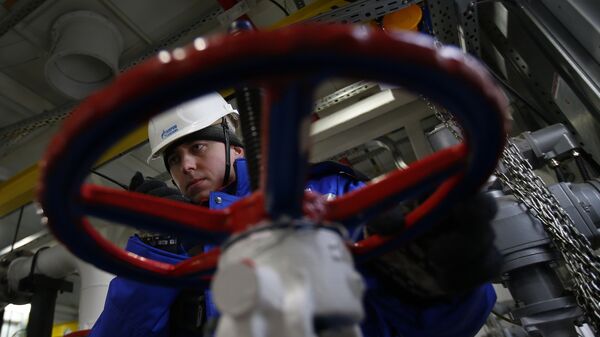"The effect of the cessation of gas transit through Ukraine is to reduce availability of Russian pipeline gas into Europe. One would predict that this reduction would tend to increase demand for higher priced LNG and thus to increase the average wholesale market price, which it does… But LNG imports cannot make up for the loss of pipeline imports through Ukraine," the report dubbed "What Will Happen if Gazprom Stops Transiting Gas Across Ukraine?" read.
Under this scenario, Brooks expects the gas price to reach $125 per 1,000 cubic meters, rising to almost $200 per 1,000 cubic meters by the mid 2030’s.
Gazprom seeks to avoid the Ukrainian gas transit route by creating the Nord Stream 2 and Turkish Stream pipelines.
Russia and Ukraine have been locked in a three-year row over the price of Russian natural gas and delivery terms.
In June 2014, Gazprom switched Ukraine to a prepayment scheme citing its massive gas debt. Ukraine’s energy firm Naftogaz refused to buy gas from Gazprom in October 2015 due to high prices, saying it had other suppliers in Europe.
The European Union intervened in late 2015 to ensure uninterrupted gas transit through Ukraine. Most recent trilateral meeting last December saw Ukraine agree to buy up to 4 billion of cubic meters of gas from Russia but the talks stalled when Kiev pushed to retroactively revise its contract with Moscow.



